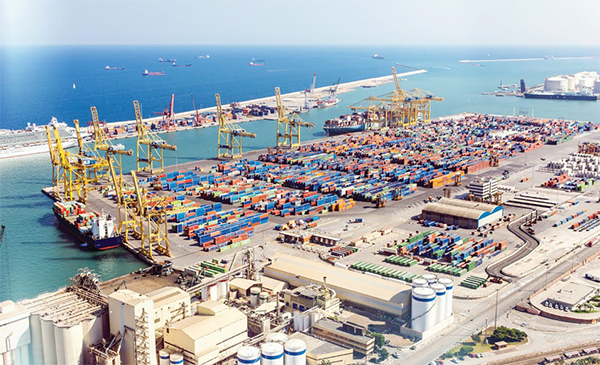 The freight forwarding industry in Abu Dhabi is undergoing rapid evolution, driven by significant infrastructure investments, diversification efforts, and strategic national projects. With its position as a key logistics hub, Abu Dhabi is seeing strong demand for specialized logistics services, particularly in support of large-scale oil, gas, and renewable energy projects. The integration of Etihad Rail has further strengthened multimodal connectivity, offering sustainable alternatives to road transport and enhancing inland cargo movement.
The freight forwarding industry in Abu Dhabi is undergoing rapid evolution, driven by significant infrastructure investments, diversification efforts, and strategic national projects. With its position as a key logistics hub, Abu Dhabi is seeing strong demand for specialized logistics services, particularly in support of large-scale oil, gas, and renewable energy projects. The integration of Etihad Rail has further strengthened multimodal connectivity, offering sustainable alternatives to road transport and enhancing inland cargo movement.
Sustainability is becoming a central tenet of Abu Dhabi’s logistics strategy. In line with the UAE’s Net Zero 2050 vision, key logistics players and infrastructure providers are implementing initiatives such as solar-powered warehouses, low-emission cargo handling equipment, and LEED-certified logistics facilities. Etihad Rail itself is expected to cut greenhouse gas emissions by millions of tons annually by shifting heavy freight from road to rail. Freight forwarders are also increasingly aligning with green supply chain practices, including carbon offsetting programs and the adoption of recyclable packaging solutions.
On the technology front, Abu Dhabi is leading the region’s digital logistics transformation. Maqta Gateway, the digital arm of AD Ports Group, is streamlining operations through paperless trade, blockchain-secured customs clearance, and real-time cargo visibility. Logistics companies are adopting advanced transportation and warehouse management systems, while artificial intelligence and predictive analytics are being utilized to optimize delivery routes, enhance cargo forecasting, and minimize downtime. Automation is becoming more prominent in warehousing and distribution, with pilot projects involving robotics and drones gaining traction.
From a regional perspective, Abu Dhabi is strategically positioning itself as the logistics backbone of the UAE and the wider Gulf.
 Khalifa Port, now one of the world’s fastest-growing ports, is directly linked to Etihad Rail and KEZAD, forming an integrated ecosystem that is ideal for international manufacturers, distributors, and project owners. Mussafah, meanwhile, remains the industrial heartland for heavy cargo and engineering equipment logistics. The emirate is also expanding overland freight corridors with Saudi Arabia and strengthening maritime links with East Africa and the Indian Subcontinent, enhancing its role in regional re-export and transshipment trade.
Khalifa Port, now one of the world’s fastest-growing ports, is directly linked to Etihad Rail and KEZAD, forming an integrated ecosystem that is ideal for international manufacturers, distributors, and project owners. Mussafah, meanwhile, remains the industrial heartland for heavy cargo and engineering equipment logistics. The emirate is also expanding overland freight corridors with Saudi Arabia and strengthening maritime links with East Africa and the Indian Subcontinent, enhancing its role in regional re-export and transshipment trade.
In summary, Abu Dhabi’s freight forwarding industry is undergoing a phase of strategic transformation. It is embracing sustainability, driving digital innovation, and leveraging regional integration to become a resilient and future-ready logistics powerhouse—supporting not only domestic economic growth but also broader connectivity across the Middle East, Asia, and Africa